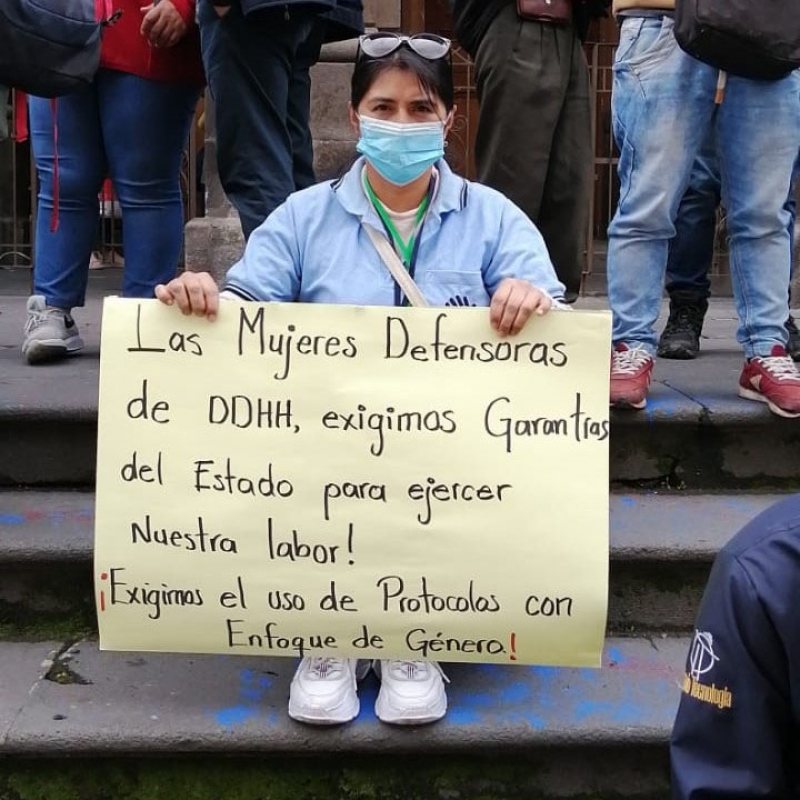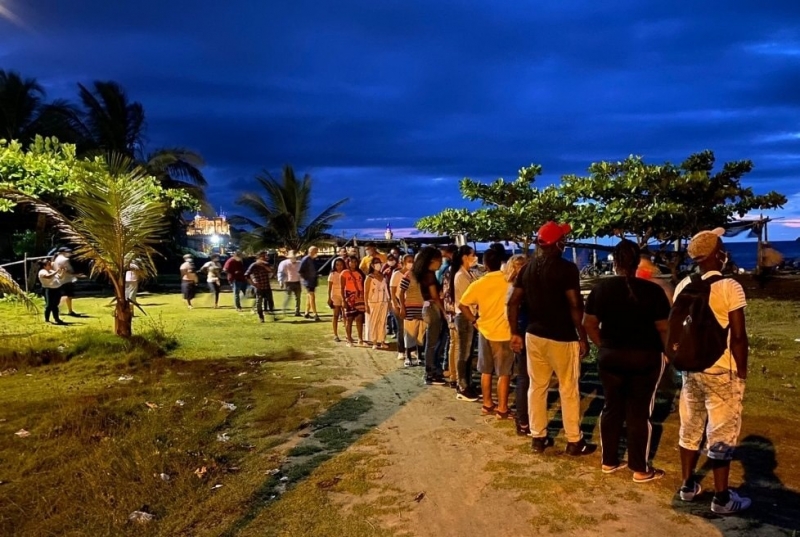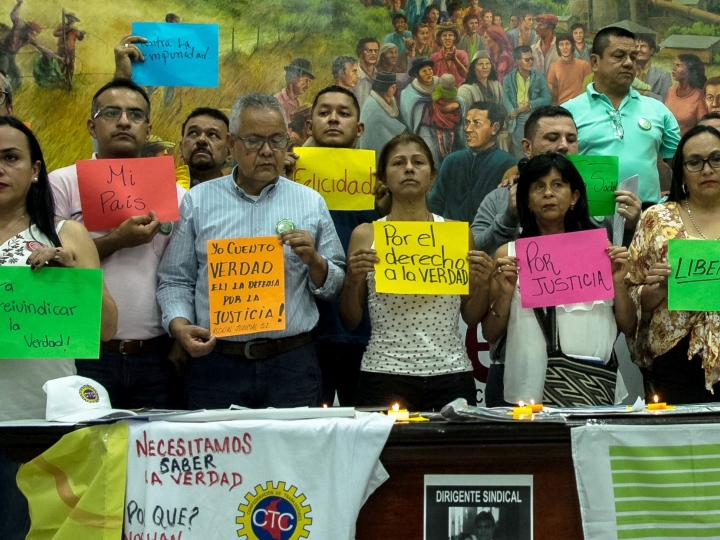"Despite the difficulties, we victims harbour the hope of a different country": say social organisations from the territories affected by the armed conflict.
Victims, ex-combatants and international delegations dressed in white to attend the event that ended 52 years of conflict between the Revolutionary Armed Forces of Colombia (FARC) and the Colombian government.
Five years after this historic pact, Colombian civil society organisations take stock of the difficulties and challenges they have faced along the way. They talk about the lack of commitment from the government and institutions towards those who defend human rights because, according to them, "there is no security for leaders and social leaders", explains María Simone, advocacy advisor for the Association of Victims for Peace and Development (ASVIPAD).
Murders of human rights defenders have increased since the signing of the Peace Accord. According to the organisation Somos Defensores, 198 murders were recorded between 2014 and 2016. Since 2016, the Institute for Development and Peace Studies (Indepaz) has recorded more than 1,200.

Because of this situation of violence, some organisations created a network to take care of their security and sought support from international cooperation. "This has been the only thing that has allowed us to continue working even with these obstacles," said Simone.
Including communities in the regions in the country's development is a key issue in order to strengthen the state's presence in these places and offer better opportunities to those who lived through the consequences of the conflict. However, after the FARC left the areas they controlled, organisations denounced new controls by illegal armed groups.
"The pact with the FARC ignored other armed dynamics such as the National Liberation Army (ELN) who have been exercising territorial control" says Iván Rueda, executive secretary of the Inter-Church Justice and Peace Commission (CIJP)
With the end of a multilateral ceasefire, communities have been collecting proposals with security guarantees, and it is hoped that these initiatives can be included in the final report of the Commission for the Clarification of the Truth (CEV). This institution was created following the signing of the ceasefire to investigate and provide the country with a historical account of the origins and events that marked the conflict.
On the other hand, social organisations are also asking the Special Jurisdiction for Peace (JEP) to broaden its framework of interpretation so that members of other illegal armed groups can appear before this body.
During the implementation of the peace agreement, emphasis was also placed on the visible re-victimisation suffered by those directly affected by the conflict. "This is due to the fact that the peace agreement did not have an effective response to comprehensively redress the victims," says Diana Barrios, programme coordinator of the Women in Law Collective Association (COLEMAD).
Luz Hache, spokesperson for the National Movement of Victims of State Crimes (MOVICE) recalls the case of "the Colombian military forces and those actors who have been brought before the JEP and who have not assumed any responsibility. On the contrary, they have revictimised the victims".
In order to prevent victims of the armed conflict from continuing this cycle of repetition, Hache says that it is important that these actors who appear before the JEP support the construction of the truth from the position of perpetrators. In addition, the organisations also consider that victims must have more participation in the Integral System in order to mitigate re-victimisation and contribute to reparation.

The CIJP organisation has been observing an important advance in the processes of community awareness and its extrajudicial relationship. "On some occasions with the CEV we have carried out our own exercises of transforming and transitional memories with the new generations in a relationship with groups responsible or perpetrators", explained Rueda.
From the organisation ASVIPAD, the legal representative Nubia Sánchez adds that "we must continue to insist on these peace-building processes through education to promote the participation of the victims of the armed conflict".
Sánchez shares that her organisation ASVIPAD is supporting the implementation of the peace agreement through the development of historical memory exercises for non-repetition and psycho-legal attention, counselling and guidance for women victims.
The Norwegian Human Rights Fund Colombia remains committed to supporting organisations working to advance this historic agreement that marked a step forward for reconciliation in Colombian society.

